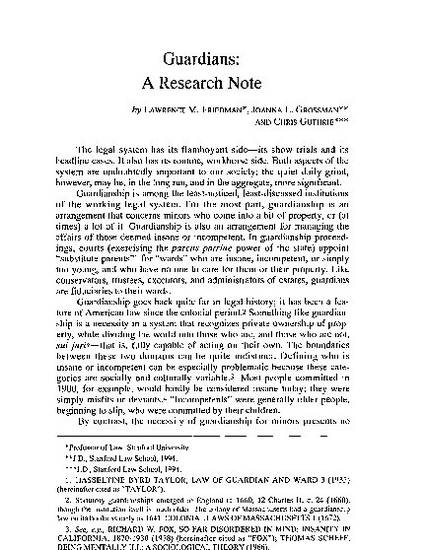
- guardian and ward
- Family Law,
- Juvenile Law and
- Law
Guardianship goes back quite far in legal history; it has been a feature of American law since the colonial period. Something like guardianship is a necessity in a system that recognizes private ownership of property, while dividing the world into those who are, and those who are not, sui juris-that is, fully capable of acting on their own. The boundaries between these two domains can be quite indistinct. Defining who is insane or incompetent can be especially problematic because these categories are socially and culturally variable. Most people committed in 1900, for example, would hardly be considered insane today; they were simply misfits or deviants. "Incompetents" were generally older people, beginning to slip, who were committed by their children...Since the system was introduced to American law in the 1600s, thousands and thousands of guardianships have been established, managed, and closed. It is disconcerting to find that almost nothing has been written about guardianship arrangements and how they worked in different periods; what little there is has been mainly doctrinal. This research note flows out of a modest effort to document some basic facts about the guardianship system at work in one place and at one time (Alameda County, California, 1900).
Available at: http://works.bepress.com/chris-guthrie/27/
